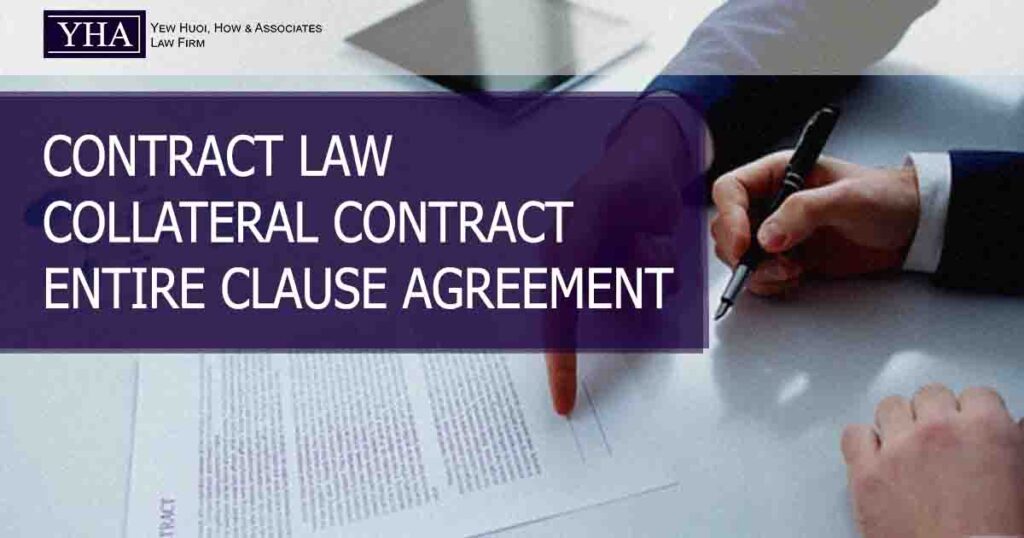A and B entered into an agreement on 1.9.2017. It was signed but not stamped. The agreement was later amended and was signed again a year later on 23.2.2018. The new agreement was stamped with the amendments. There were add-ons to the parties’ obligations and an “entire agreement clause”. A year later, A relied on the previous agreement 1.9.2017 and accuse B of breach. A argued that both agreements should run concurrently as collateral contract. B says no and rely on the entire agreement clause.
Q: What is entire agreement clause?
A: An “entire agreement clause” usually provides that the “last” written contract signed between the parties would have all the terms and conditions. The final agreement is the only agreement containing all the clauses agreed between the parties. There are no other terms. An “entire agreement clause” usually reads as follows: “The terms and conditions herein contained shall constitute the sole and entire agreement and understanding among parties hereto with respect to the subject matter of this Agreement and supersedes all proposal, negotiations, commitments and understandings with respect to the subject matter hereof made between the Parties hereto prior to the execution of this Agreement”.
Q: What is the effect of the entire agreement clause in an agreement?
A: In the most recent High Court decision of BsyncLive Sdn Bhd, the Court held that the entire agreement clause constitutes a binding agreement between the parties and any promises or assurances made in the course of negotiations shall have no contractual force. Applying BsyncLive Sdn Bhd, the clauses in the agreement on 23.2.2018 are the only agreements. A cannot rely on the terms in the 2017 agreement.
Q: What is collateral contract?
A: It is a separate and independent contract exists beside the main contract. It can be oral or written. For instance, a landlord promises the tenant to fix the lightings while there is a lease agreement. There is a collateral contract to fix the lighting even though it is not in the lease agreement.
Q: Can we say the subsequent agreement is a collateral contract to the earlier agreement?
A: Depends. Yes, if the terms of the subsequent agreement is consistent with the earlier one. However, if the subsequent agreement contains material changes in parties’ obligations and the “entire agreement clause”, there can be no collateral contract.
Case in point: BsyncLive Sdn Bhd v Technology Park Malaysia Corp Sdn Bhd [2023] 7 MLJ

